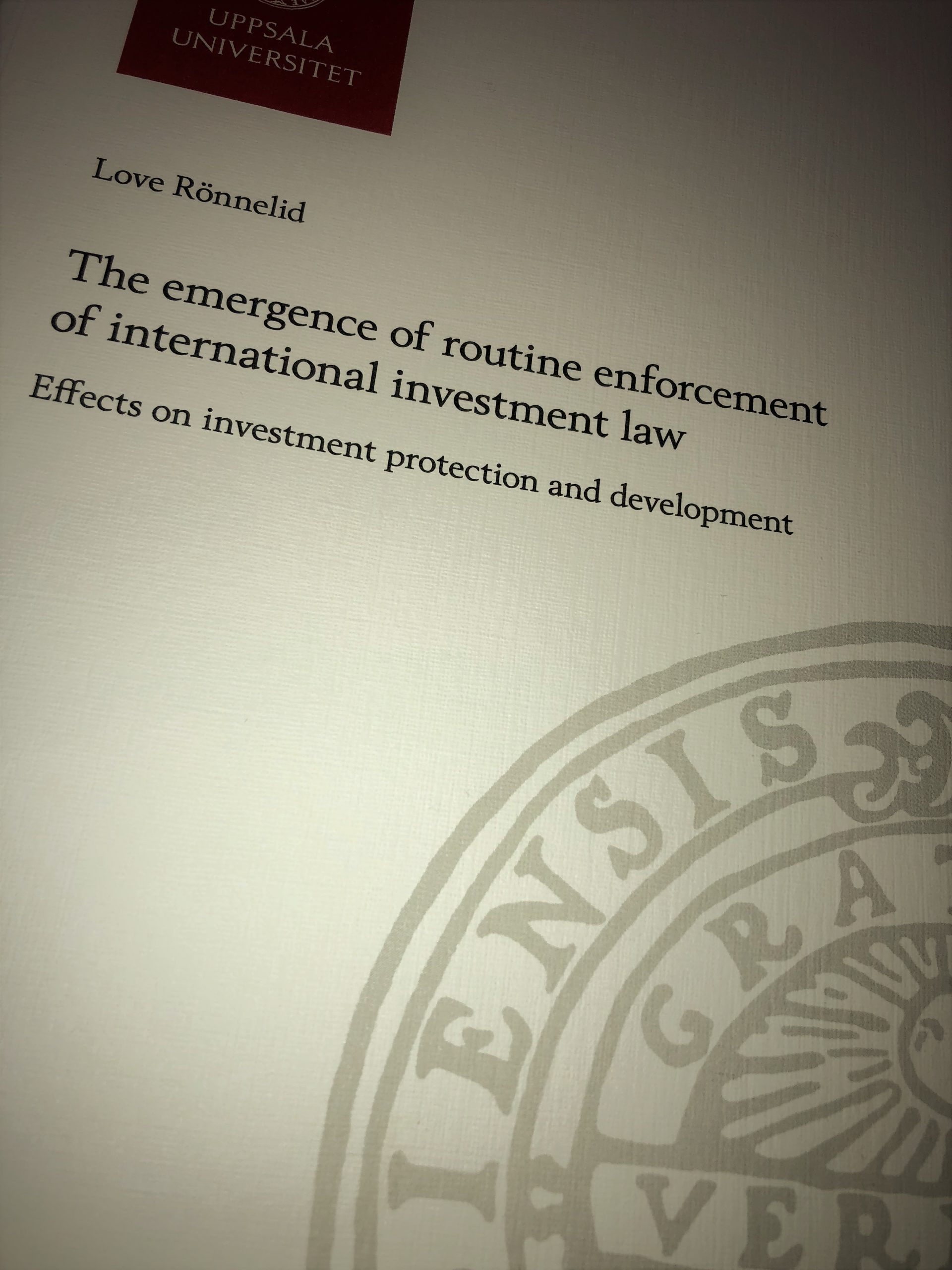Ph.D. Disputation: L. Rönnelid, The emergence of routine enforcement of international investment law: Effects on investment protection and development, Uppsala University

On 16th February 2018, Love Rönnelid of Uppsala University successfully defended his Ph.D. thesis entitled "The emergence of routine enforcement of international investment law: Effects on investment protection and development".
Professors Pål Wrange of Stockholm University and Celine Tan of Warwick University served as board members of the examination board, which was chaired by Professor Inger Österdahl of Uppsala University. The Ph.D. student’s first supervisor was Professor Iain Cameron of Uppsala University.
Professor Steffen Hindelang of the University of Southern Denmark at Odense, formerly Freie Universität Berlin, served as “opponent” (Faculty examiner) in the public defence.
This dissertation explores how the enforcement of international investment law became so powerful. It does so by tracing the different legal developments that have enabled the strength of the present regime. In this respect, the two aims of providing investment protection and that of fostering economic development are examined.
The dissertation includes a detailed examination of the history of investment-law. It then turns to analysis of central legal instruments, such as the New York and ICSID Conventions, as well as investment insurance agencies and a large network of bilateral investment treaties. Furthermore, key interpretations that have enabled investment law enforcement are surveyed. The dissertation attempts to find the roots of central justificatory concepts within investment law discourse, such as “the rule of law”, “depoliticization”, and “good governance”. Furthermore, several chapters look into how states have provided additional backing to the investment system through investment-insurance systems. These systems are treated somewhat in depth, as they have not been studied much in the academic literature. A number of case studies on investment insurance in action are included as well. These studies show that certain types of risk mitigation for investors also seem to constitute risk increases for host states. Moreover, the emergence and effects of third-party litigation funders in investment law is investigated. Finally, the dissertation attempts to survey the role of law with respect to previously successful development strategies. The outcomes of this examination overall indicate that standard types of BIT protection stand in conflict with potentially successful development strategies. For this reason, it seems the regime has contributed to investment protection, but not to development. The dissertation ends with some reflections on the role of lawyers in more powerful systems of global governance, such as investment law.




